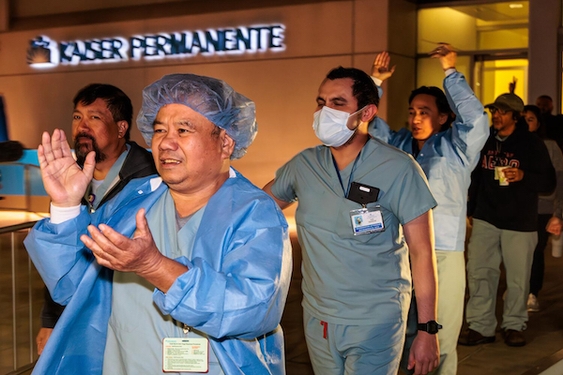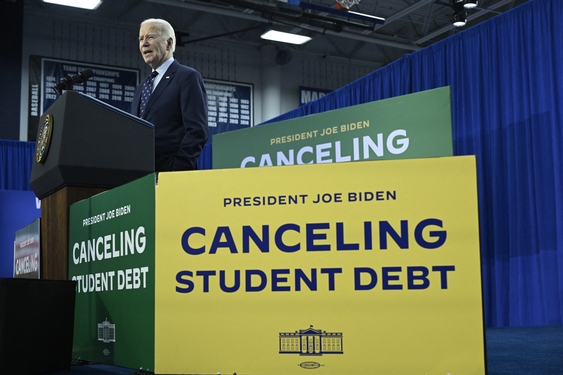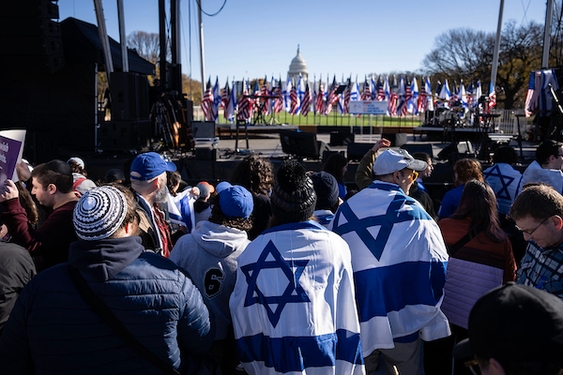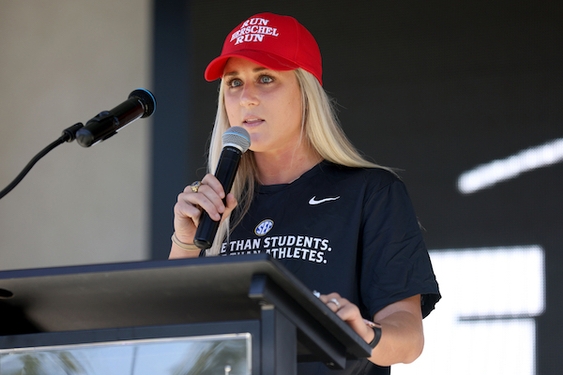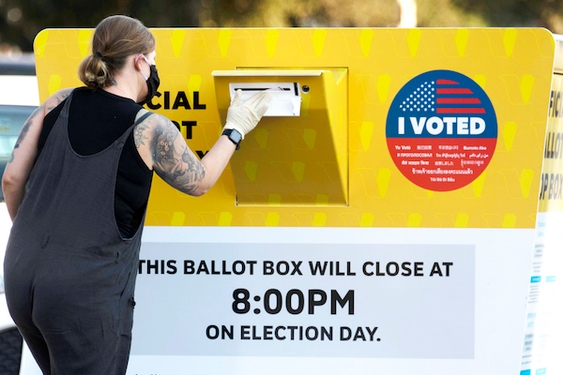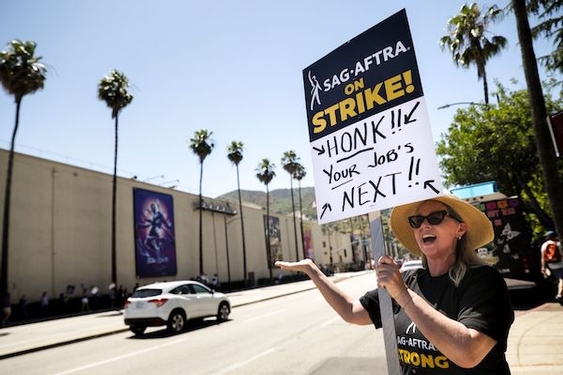More than 75,000 Kaiser Permanente workers in California and elsewhere walked off the job Wednesday in what labor leaders described as the biggest strike by healthcare workers in U.S. history.
The Coalition of Kaiser Permanente Unions said workers were protesting "bad faith bargaining" by Kaiser executives as unions negotiate over wages and other issues that labor leaders contend have resulted in chronic understaffing.
"Healthcare workers want to be at the facilities with their patients," said Renée Saldaña, spokesperson for SEIU United Healthcare Workers West, which represents nearly 60,000 workers in the coalition including nursing assistants, housekeepers and medical assistants. "They're doing this for their patients because of the delays in care, because of the short-staffing crisis."
Kaiser leaders said that they had bargained in good faith and that solid wages, benefits and other employee support helped Kaiser weather the national strain on healthcare staffing better than other providers. They said employee turnover at Kaiser was far below the industry average.
"Across the country, there's been a staffing crisis and we have not been immune to that," said Michelle Gaskill-Hames, president of Kaiser Permanente Health Plan and Hospitals of Southern California and Hawaii. "We've had the challenges, but we have been leaning in heavily to try to address them."
At the bargaining table, "the discussions are down to wages," she said. Oakland-based Kaiser prides itself on being a good employer, Gaskill-Hames said, but "we're also committed to being affordable" for Kaiser members seeking care.
The Kaiser workers on strike include licensed vocational nurses, X-ray technicians, surgical technicians, phlebotomists, certified nursing assistants, pharmacy technicians and respiratory therapists, as well as support staff such as housekeepers and food service workers.
Workers involved in the massive strike make up more than a third of Kaiser's nationwide workforce and include employees in California, Oregon, Washington, Colorado, Virginia and the District of Columbia. In most states, the strike is slated to last for three days; in Virginia and the District of Columbia, it will be a single day.
Union leaders have warned, however, that if Kaiser persists with "unfair labor practices," a longer and bigger strike could follow in November. The union coalition alleged Kaiser had refused to provide information it requested during negotiations, among other complaints.
Gaskill-Hames said that despite the tens of thousands of missing workers, the goal for Kaiser was "minimal disruption" for its members, which include some 4.9 million people in Southern California alone. Some patient appointments might have to be rescheduled during the strike, but she said Kaiser was "committed to staying open as much as we can."
To avoid disruption, Kaiser officials said they were marshaling existing employees to help cover needs during the strike, as well as bringing in an unspecified number of replacement workers.
Kaiser also said it could turn to retail pharmacies such as Rite Aid and Walgreens to help serve its members if any of its outpatient pharmacies needed to close, adding that no such closures would occur in Southern California. Gaskill-Hames also said there had been outreach ahead of the strike to alert Kaiser members that they could use mail-order services for needed medications.
Raises have been a sticking point in negotiations between Kaiser and the unions. Labor leaders said the wage hikes proposed by Kaiser executives wouldn't keep up with surging costs faced by workers. They also balked at the idea of offering workers in some regions bigger raises than in others, calling it a "divide-and-conquer strategy."
Kaiser said the differing raises are needed to ensure that its pay rates in each region are tailored to what local workers in different parts of the country can make for similar jobs.
Last month, Kaiser said it was offering "across-the-board wage increases" ranging from roughly 10% to more than 14% over four years, with bigger raises proposed in regions where its pay isn't at least 10% above local levels for similar workers. More recently, it said it had proposed hikes ranging from more than 12% to 16% over four years.
The unions said the proposed amounts are inadequate and has been seeking four years of roughly 6% annual increases to base wages for workers in all regions.
The two sides have also clashed over a minimum wage for coalition workers. As of Monday, Kaiser said it was offering a minimum wage of $23 an hour in California and $21 an hour in other states starting in 2024, with increases each year of the contract. The unions have been seeking a $25-per-hour minimum wage.
The labor organizations have pushed to mandate that minimum through a California bill now in the hands of Gov. Gavin Newsom, but union leaders said it also needs to extend to workers in other states. Saldaña of SEIU-UHW cited "the cost of living in places like Portland, Oregon; Seattle, Washington; Denver, Colorado," saying that "workers there as well have been struggling to keep up with inflation."
©2023 Los Angeles Times. Visit at latimes.com. Distributed by Tribune Content Agency, LLC.


